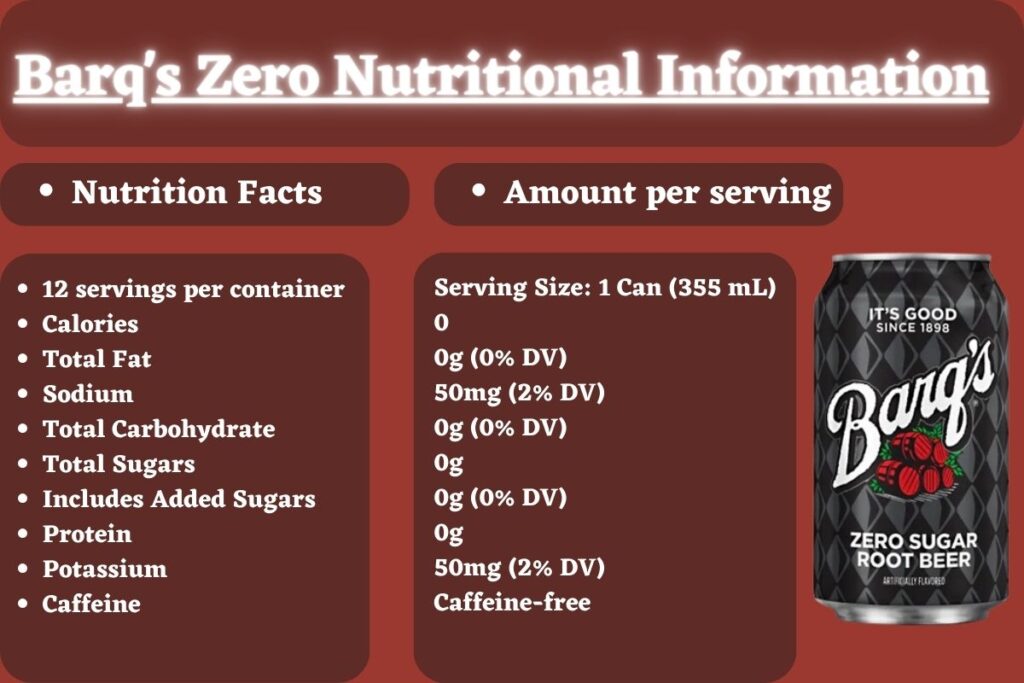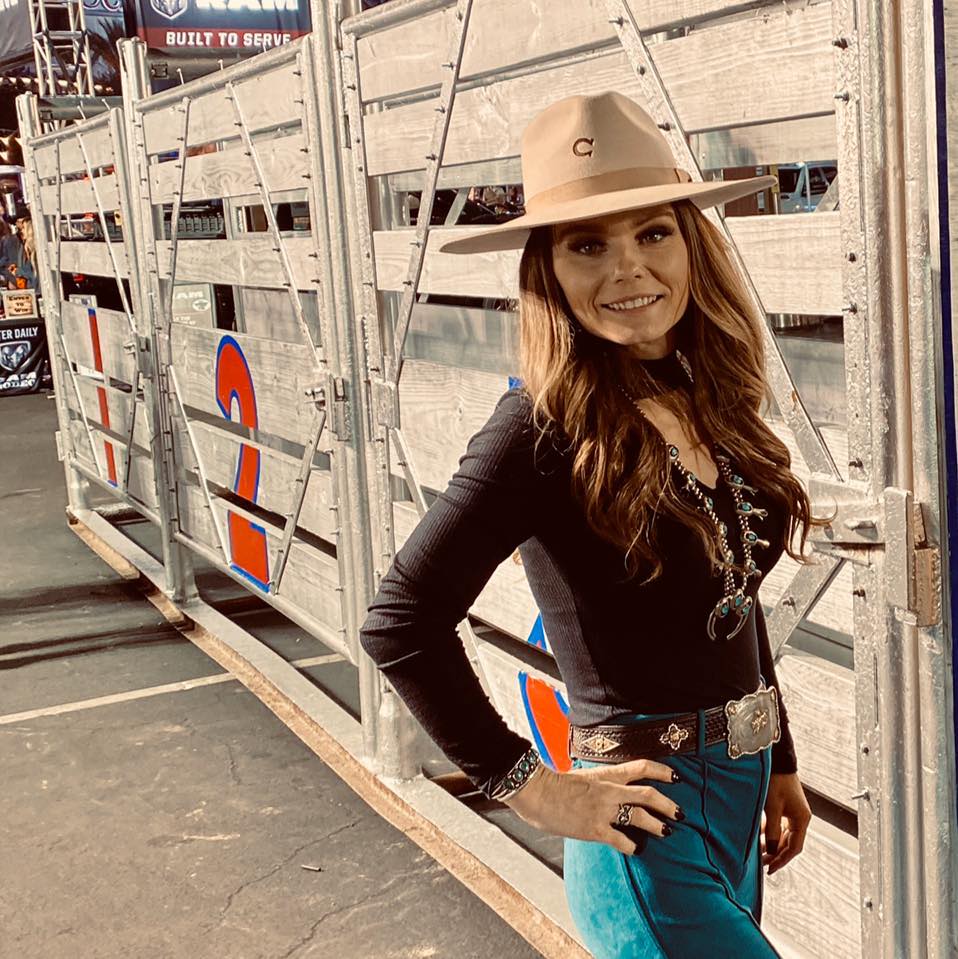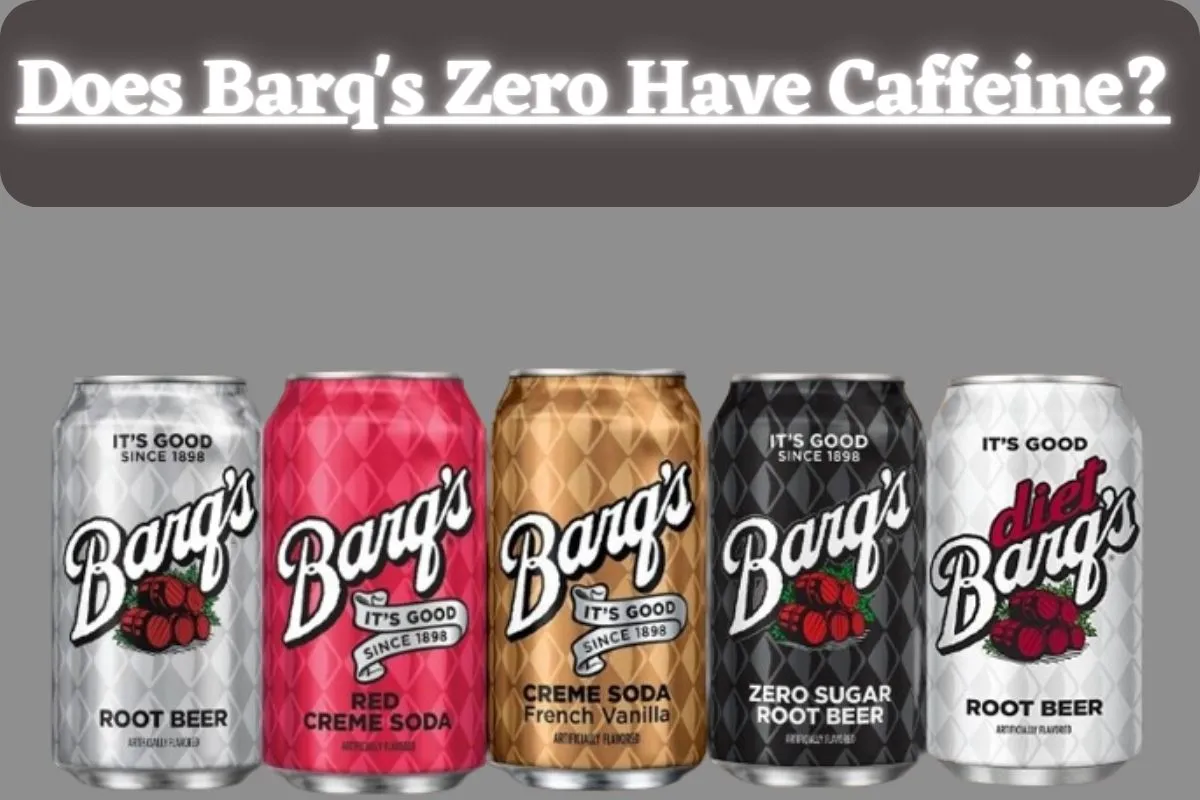The Barq’s name carries a long and distinct history within the world of root beer. Its signature “bite” sets it apart, making the question of caffeine content even more relevant.
For those seeking to enjoy Barq’s classic flavor without the potential effects of caffeine, Barq’s Zero Sugar offers an intriguing alternative. In this article, we’ll clarify that Does Barq’s Zero Have Caffeine?
Importance of Knowing Caffeine Content in Barq’s Zero
Barq’s Zero is a variant of Barq’s root beer that offers the same rich and creamy flavor profile as the original but without any sugar or caffeine. This makes it an attractive option for those looking to reduce their sugar intake or avoid caffeine.
Barq’s root beer, first introduced in 1898 by Edward Barq in Biloxi, Mississippi, quickly gained popularity due to its unique taste crafted from a blend of sarsaparilla root, vanilla, and other secret ingredients.
It distinguished itself with a bold flavor and a slight “bite,” often associated with its caffeine content, which is generally lower compared to other caffeinated beverages.
Over the years, Barq’s expanded and was eventually acquired by The Coca-Cola Company in 1995, helping to cement its status as a beloved beverage choice across the United States.
The importance of knowing the caffeine content in Barq’s Zero is significant, particularly for individuals sensitive to caffeine or those who are advised to avoid it for health reasons, such as pregnant women, people with certain medical conditions, and children.
Does Barq’s Zero Have Caffeine?
No, Barq’s Zero Sugar Root Beer is indeed caffeine-free. This information is clearly displayed on the product’s packaging and is also confirmed on the official Coca-Cola website where Barq’s is listed under their brands. This makes it a great option for a variety of people:
- Caffeine Sensitive: Those with caffeine sensitivities can enjoy the classic Barq’s taste without worrying about the stimulating effects of caffeine.
- Dietary Restrictions: Individuals following diets that restrict caffeine intake can include Barq’s Zero Sugar without concern.
- Late-Night Cravings: Barq’s Zero Sugar can satisfy a root beer craving without the risk of caffeine interfering with sleep patterns.
It’s crucial to remember that only Barq’s Zero Sugar is caffeine-free. Regular Barq’s Root Beer does contain caffeine, so it’s important to choose the right version depending on your preferences and needs.
List of Ingredients in Barq’s Zero
Here are the ingredients listed for Barq’s Zero Sugar Root Beer:
- Carbonated Water: This serves as the base of the beverage, providing the refreshing dizziness that is characteristic of carbonated drinks.
- Caramel Color: Added to give the root beer its classic dark brown color, caramel color is a common food coloring agent used in many beverages and foods.
- Potassium Sorbate and Sodium Benzoate: These are preservatives that are added to protect the taste and freshness of the beverage, ensuring that it maintains its quality over time.
- Aspartame and Acesulfame Potassium: These are both artificial sweeteners used to sweeten the root beer without adding any sugar or calories. It’s important to note that if you are monitoring your intake of artificial sweeteners, you may want to be cautious when consuming products that contain these ingredients.
- Citric Acid: This ingredient is added for tartness, balancing out the sweetness of the sweeteners and providing a tangy flavor profile to the root beer.
- Artificial and Natural Flavors: These are the secret ingredients that give Barq’s Zero Sugar Root Beer its distinctive flavor. The distinctive flavor that customers adore is produced by combining artificial and natural tastes.
- Acacia Gum: Acacia gum, sometimes referred to as gum arabic, is a natural thickening and stabilizer that contributes to the smooth texture of the root beer.
- Potassium Chloride: This ingredient serves as a potassium supplement, providing a source of this essential mineral. Beverages frequently contain potassium chloride added to them to boost their nutritional content.
- Phenylketonurics: Contains Phenylalanine: Individuals with PKU must strictly avoid aspartame since their bodies can’t properly process phenylalanine. Accumulation of this amino acid can lead to health concerns.
Barq’s Zero Nutritional Information

Barq’s Zero Sugar Root Beer offers a guilt-free way to indulge in the classic root beer taste. With 12 servings per container, each 12-ounce (355ml) can has zero calories, zero grams of fat, and zero grams of both total carbohydrates and sugars.
It contains a small amount of sodium (50mg or 2% of the daily value) and a touch of potassium (50mg or 2% of the daily value). Importantly, Barq’s Zero Sugar is completely caffeine-free, making it a beverage that can be enjoyed at any time of day.
| Nutrition Facts | Amount per serving |
| 12 servings per container | Serving Size: 1 Can (355 mL) |
| Calories | 0 |
| Total Fat | 0g (0% DV) |
| Sodium | 50mg (2% DV) |
| Total Carbohydrate | 0g (0% DV) |
| Total Sugars | 0g |
| Includes Added Sugars | 0g (0% DV) |
| Protein | 0g |
| Potassium | 50mg (2% DV) |
| Caffeine | Caffeine-free |
Alternatives to Barq’s Zero and their Caffeine Content
There are several alternatives to Barq’s Zero for individuals seeking zero-calorie, caffeine-free beverage options. Here are some popular alternatives:
A&W Root Beer
One of the all-time classic root beers, A&W delivers a creamy, sweet, and undeniably nostalgic flavor experience. Its strong vanilla notes make it a favorite for those who love a smooth, mellow A&W Root Beer.
Mug Root Beer
Another iconic choice, Mug Root Beer is known for its bold sarsaparilla flavor and a slightly stronger, more assertive profile than A&W. Its popularity comes from its traditional, satisfying root beer taste.
Dad’s Root Beer
This root beer offers a sweeter profile reminiscent of vanilla cream soda and is similar in style to A&W. It’s a great choice for those who prefer a less intense sarsaparilla flavor.
IBC Root Beer
IBC stands out with its rich, complex blend of spices, including hints of licorice and wintergreen. For those who enjoy a more layered flavor profile, IBC offers a satisfying root beer experience.
Virgil’s Zero Sugar Root Beer
This premium, healthier option is naturally sweetened with stevia. It boasts a complex blend of herbs, spices, and vanilla notes, making it a delicious and sophisticated choice for those mindful of their sugar intake.
Sioux City Sarsaparilla
True to its name, Sioux City focuses purely on the classic sarsaparilla flavor. It’s perfect for root beer purists who love the traditional, slightly herbal, and earthy taste of the sarsaparilla root.
Sprecher Root Beer
Crafted in small batches, Sprecher provides a robust and creamy root beer experience. It’s known for its strong sarsaparilla flavor and a thick, foamy head, delivering a satisfying and gourmet feel.
Boylan’s Root Beer
Boylan’s sets itself apart with its focus on natural ingredients and real cane sugar. It’s a classic choice for root beer lovers who value a more traditional, pure flavor. Boylan’s also offers a diet version for those wanting the natural sweetness without the sugar.
Barq’s Root Beer
The original Barq’s stands out with its signature “bite” – a slightly spicier flavor profile compared to some of the smoother root beers. It also contains a moderate amount of caffeine for an extra energy kick.
Stewart’s Root Beer
Featuring subtle citrus notes and a less sweet profile, Stewart’s is a refreshing and caffeine-free take on root beer. It’s a great choice for those who enjoy a root beer with a lighter, more balanced flavor profile.
| Alternatives | Caffeine Content |
| A&W Root Beer | Caffeine-free |
| Mug Root Beer | Caffeine-free |
| Dad’s Root Beer | Caffeine-free |
| IBC Root Beer | Caffeine-free |
| Virgil’s Zero Sugar Root Beer | Caffeine-free |
| Sioux City Sarsaparilla | Caffeine-free |
| Sprecher Root Beer | Caffeine-free |
| Boylan’s Root Beer | Caffeine-free |
| Barq’s Root Beer | 22 mg/12 fl oz |
| Stewart’s Root Beer | Caffeine-free |
Conclusion
As consumers become increasingly health-conscious, the demand for delicious yet responsible beverage options grows. Barq’s Zero Sugar Root Beer addresses this need by offering a way to indulge in that nostalgic root beer flavor without compromising on sugar or caffeine intake.
Whether you want to limit added sugar, have medical reasons to avoid caffeine, or simply want a refreshing root beer fix any time of the day, Barq’s Zero Sugar proves that you can have the full flavor experience without the ingredients you want to avoid.
This makes it a satisfying and guilt-free option, letting everyone enjoy the distinct, zesty taste that’s synonymous with the Barq’s name.
Frequently Asked Questions
Q1. Does Barq’s Zero taste different from regular Barq’s root beer?
Yes, there are subtle differences between Barq’s Zero and regular Barq’s. While still delivering the classic “bite” that makes Barq’s unique, the zero-sugar version uses artificial sweeteners in place of sugar. This can create a slightly less sweet and somewhat less syrupy mouthfeel overall. However, many find the core flavor experience to be quite similar.
Q2. Is Barq’s Zero appropriate for people with diabetes?
While everyone’s individual dietary needs are different, Barq’s Zero offers a potential option for people with diabetes. Since it’s sugar-free and contains zero carbs, it won’t cause the blood sugar spikes that regular soda does. However, it’s always crucial for individuals with diabetes to consult with their healthcare team before incorporating any new foods or beverages into their diets.
Q3. Can children safely consume Barq’s Zero?
Barq’s Zero is caffeine-free and sugar-free, so it doesn’t pose any particular risks for children in those respects. However, the presence of artificial sweeteners is something parents may want to consider. Moderation is generally key, and prioritizing water and other unsweetened beverages is still the healthiest practice for children.
Q4. Why is Barq’s so good?
Barq’s unique profile has made it a favorite for generations. Its signature “bite” refers to a bolder, spicier flavor compared to some smoother root beers. It also boasts a strong sarsaparilla base and a high level of carbonation that contribute to its refreshing taste and distinctive character.
Q5. Why is root beer called beer?
Historically, root beers were brewed with yeast, similar to traditional beer, and involved a slight fermentation process. While modern root beers typically don’t contain alcohol, the name originated from this early brewing practice, and the “beer” name has stuck around throughout the years.

Rossi Glover, the passionate Owner of Grand Lake Coffee, infuses every cup with her love for coffee and dedication to quality. With an extensive background in the art and science of coffee, Rossi is not just a connoisseur but a storyteller, sharing the intricate tales behind each brew.

